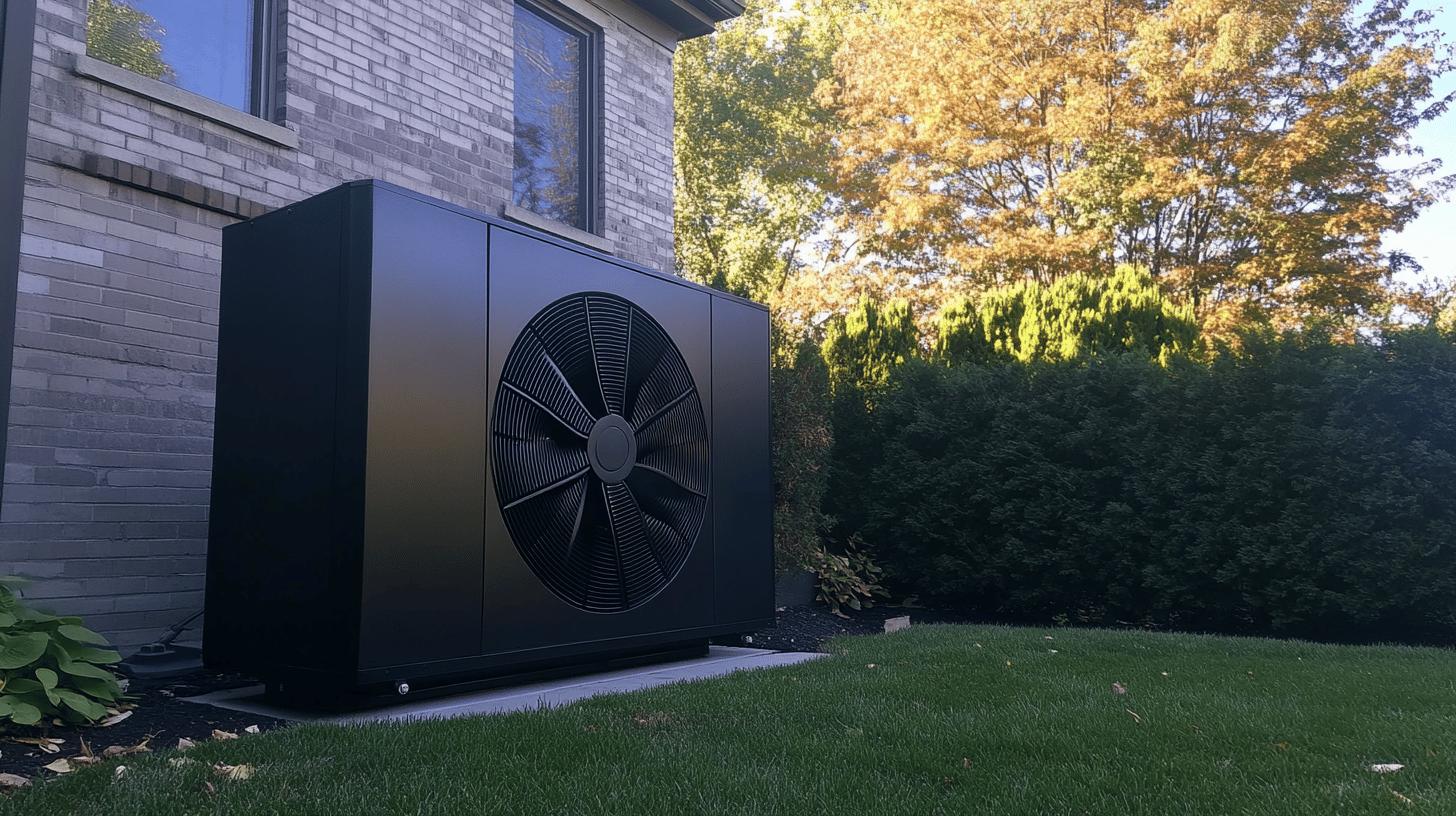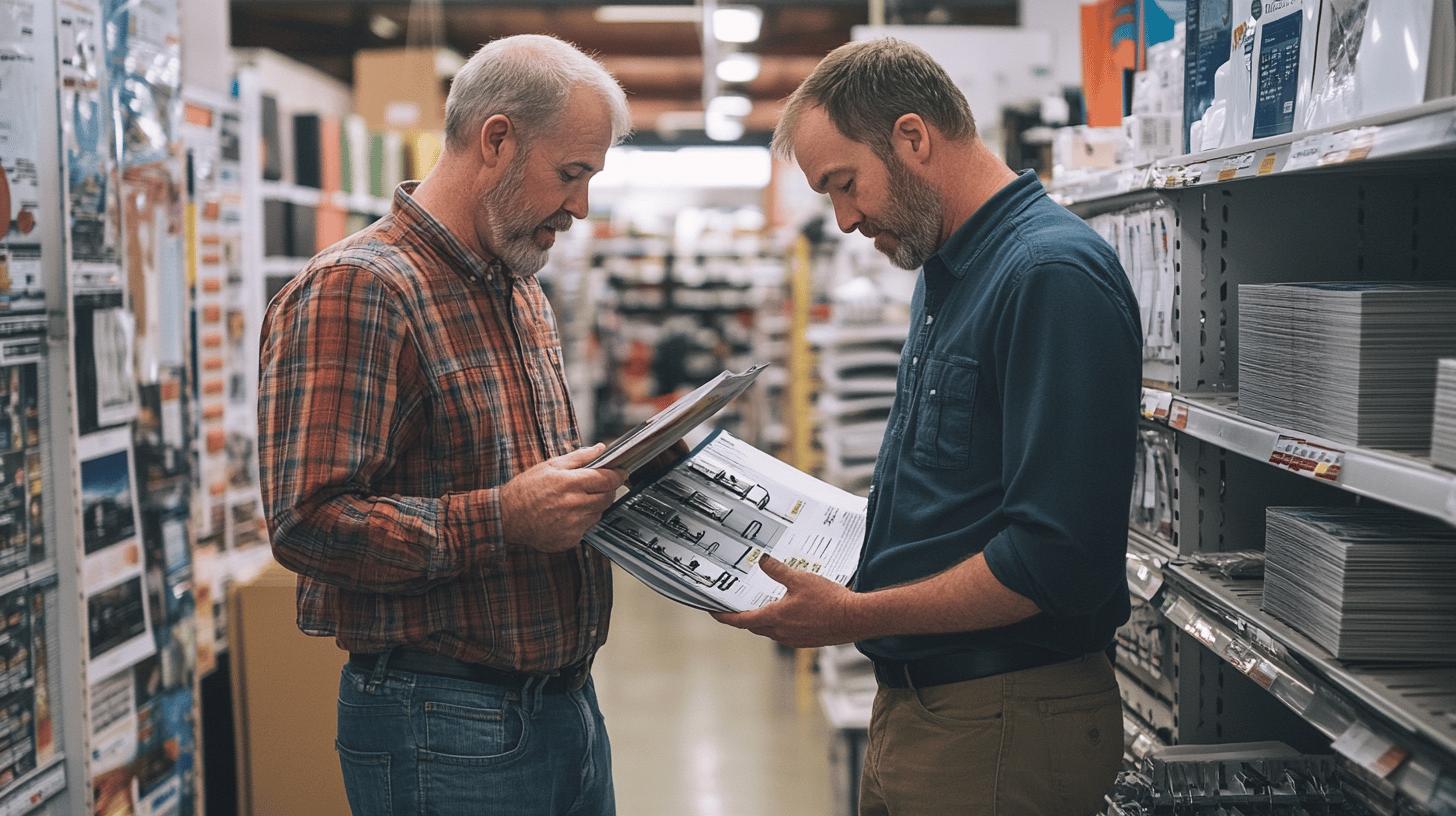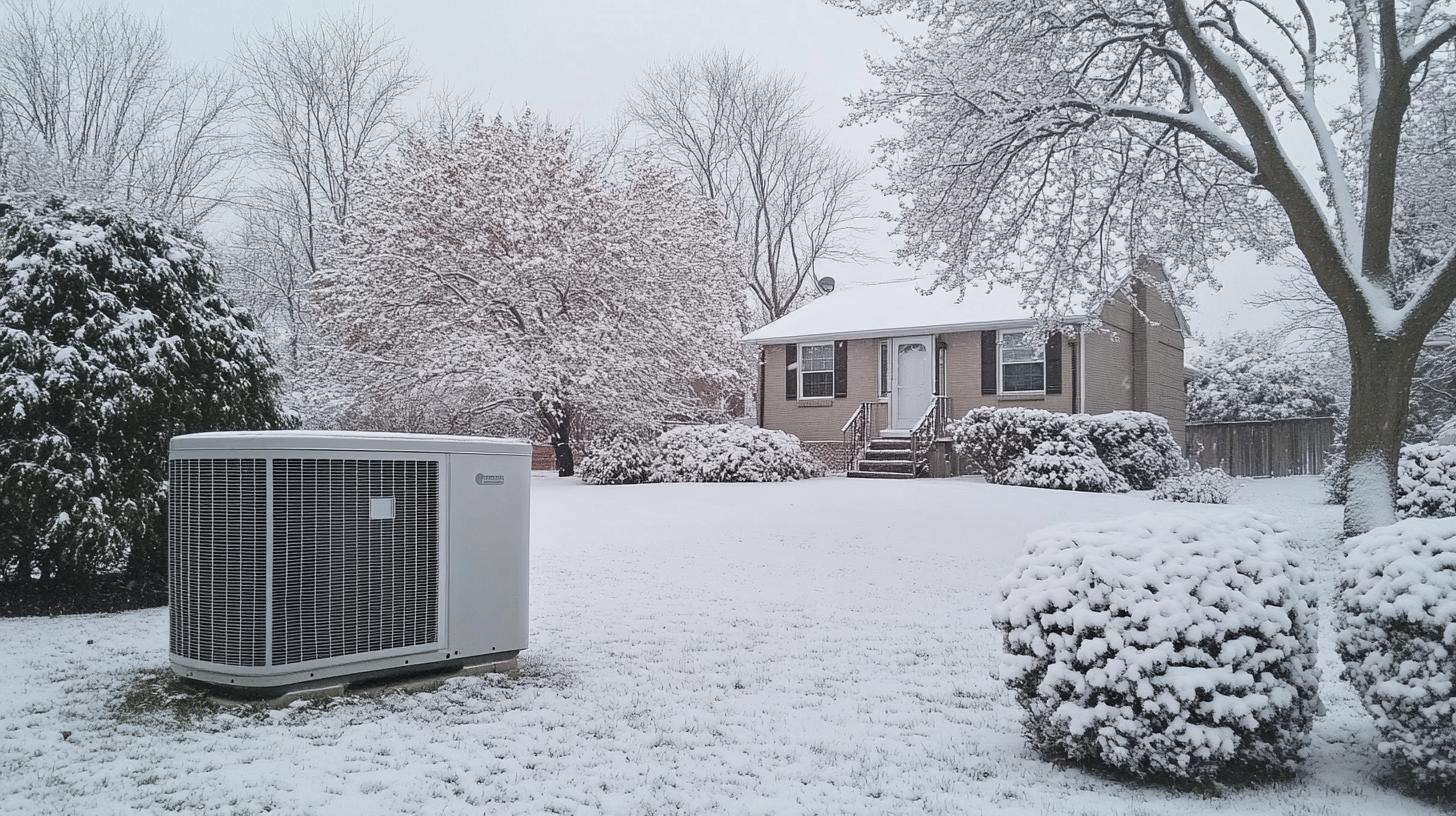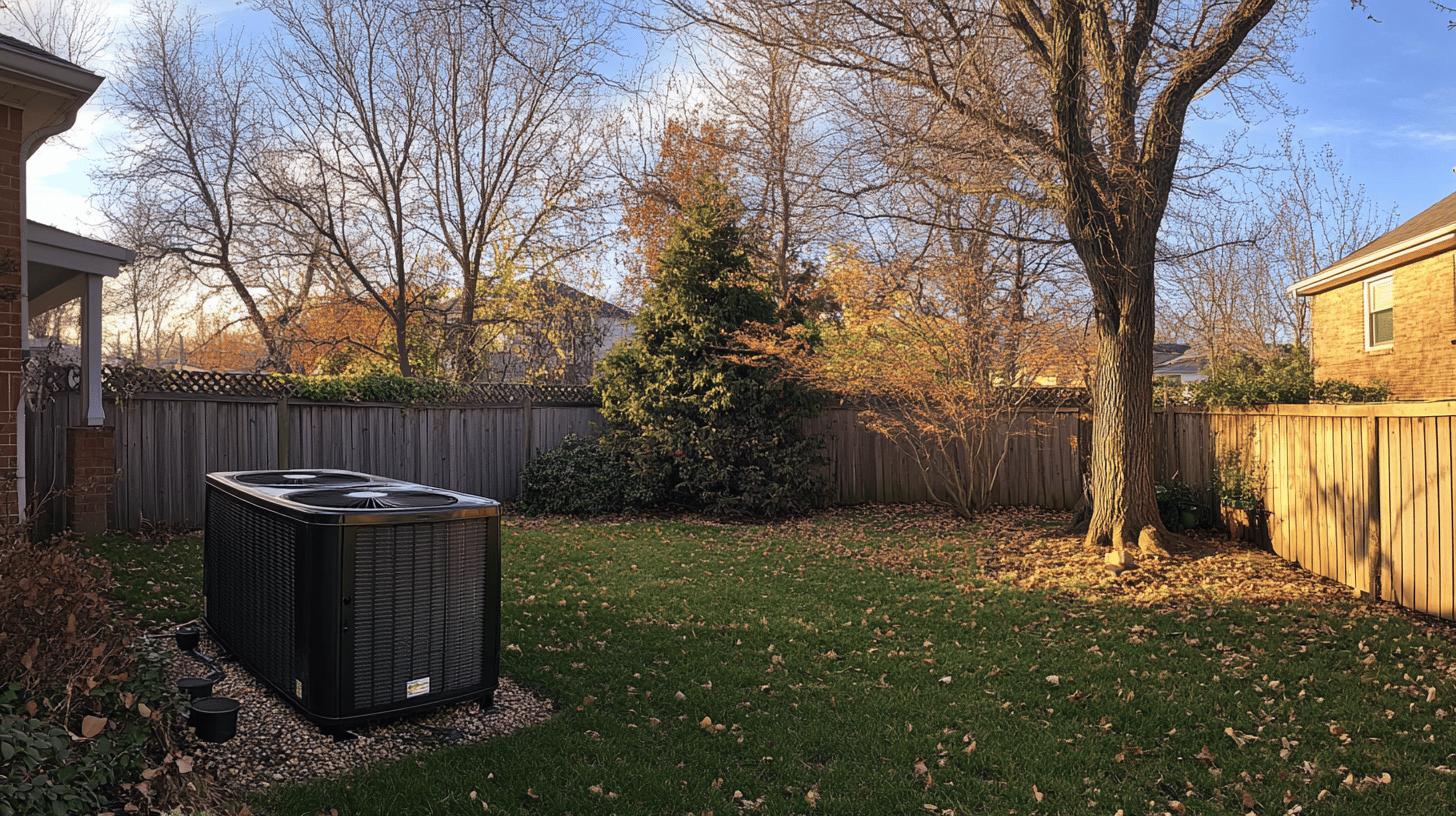HVAC system vs heat pump. With each offering unique benefits and challenges, making an informed choice is crucial for your comfort and wallet. HVAC systems, encompassing heating, ventilation, and air conditioning, provide comprehensive climate control but may have higher ongoing maintenance. In contrast, heat pumps promise impressive energy efficiency and versatility, suitable for moderate climates but potentially less effective in colder regions. Dive into our breakdown of these systems to weigh costs, efficiency, installation, and environmental impacts, so you can make the best decision for your home.
HVAC System Overview
An HVAC system manages a building’s climate with three main functions: heating, ventilation, and air conditioning. Heating usually involves a furnace to warm spaces during colder months. Ventilation circulates fresh air, maintaining air quality. Air conditioning cools rooms in warmer periods, ensuring comfort year-round.
Installation costs range from $3,000 to $10,000, depending on system size and job complexity. Regular maintenance is vital for efficiency, involving periodic checks of heating and cooling units. Ignoring maintenance can cause higher energy bills and surprise repairs, making routine service indispensable.
In regions with extreme temperatures, HVAC systems are very effective. Their strong heating and cooling handle harsh winters or hot summers well. Components can be tailored for specific climate needs, providing reliable performance and comfort.
Heat Pump Basics

Heat pumps move heat between areas, serving as both heaters in winter and coolers in summer. They reverse refrigerant flow, achieving high efficiency of 300% to 400%, making them very efficient.
Types of heat pumps include geothermal, ducted, and ductless. Geothermal pumps utilize stable underground temperatures, providing excellent efficiency. Ducted pumps use existing ducts, fitting homes with such systems. Ductless, or mini-splits, are flexible, targeting specific areas without ducts. Each type offers overall significant energy savings.
Installation costs range from $4,000 to $12,000, based on type and capacity. Though initial costs may be high, potential energy savings are substantial. Heat pumps are environmentally friendly too, using electricity for heat transfer, reducing fossil fuel reliance, and emissions.
Comparing Efficiency: HVAC System vs Heat Pump
Heat pumps generally surpass HVAC systems in efficiency, with ratings between 300% and 400%, as they transfer, not generate, heat. HVAC systems often show lower efficiency, especially with separate units.
Efficiency factors include:
- Climate: Heat pumps excel in moderate climates; HVAC systems suit extreme temperatures.
- System Age: Older systems are typically less efficient than newer technology.
- Maintenance: Essential for efficiency, preventing breakdowns, and optimizing performance.
- Insulation: Well-insulated buildings enhance efficiency by reducing heat loss or gain.
- System Size: Correct sizing prevents energy waste from undersized or oversized units.
In moderate climates, heat pumps save energy efficiently. But in cold areas, their efficiency might drop, needing extra heating. HVAC systems, with distinct heating and cooling, are better for both extremes.
Consider energy savings when choosing systems. Heat pumps’ higher efficiency can cut energy costs over time, making them more affordable in suitable climates. HVAC systems, though less efficient, offer dependable performance in tough conditions, justifying costs for those needing such reliability.
Cost Analysis and Investment: HVAC vs Heat Pump

Initial HVAC costs range from $3,000 to $10,000, influenced by size, complexity, and custom features. Heat pumps cost between $4,000 to $12,000, reflecting advanced technology and possible energy savings. The initial budget must be balanced with long-term savings potential.
| System Type | Initial Cost | Energy Savings | Return on Investment |
|---|
| HVAC | $3,000 – $10,000 | Moderate | Varies by usage |
| Heat Pump | $4,000 – $12,000 | High | Potentially higher |
Heat pumps’ efficiency leads to reduced utility bills and quicker return on investment, especially in moderate climates. HVAC systems, with higher ongoing costs, provide reliable performance in harsh climates, making them a sound investment where needed.
Factors like local climate, building size, insulation, and long-term costs guide the investment decision. Careful evaluation aids in choosing a cost-effective, efficient solution for heating and cooling needs.
Installation and Maintenance Needs
HVAC systems require complex, time-consuming installations due to separate components and extensive ductwork. Heat pumps, with simpler installations, combine heating and cooling functions, saving time and labor costs.
HVAC System Maintenance Tasks:
- Regularly replace air filters for air quality and efficiency.
- Clean furnace for safe and efficient operation.
- Service air conditioning to prevent breakdowns.
- Seal ductwork to reduce energy loss and improve airflow.
Heat Pump Maintenance Tasks:
- Clean or replace filters for efficiency.
- Check refrigerant levels for leaks.
- Inspect electrical components for safety.
- Lubricate moving parts to enhance longevity.
Professional maintenance is essential for both systems. HVAC systems may need more frequent inspections due to multiple components. Heat pumps benefit from annual check-ups for optimal efficiency. Regular upkeep prevents costly repairs and extends system life.
Climate Considerations and Suitability

Heat pumps work best in moderate climates where temperature changes are minimal, efficiently heating and cooling without extra energy. HVAC systems suit extreme climates, providing reliable control with separate heating and cooling units.
Geography greatly influences system choice. In mild weather, heat pumps perform at their best, while their efficiency drops in cold areas, requiring extra heating. HVAC systems handle demanding weather with gas or electric furnaces and powerful air conditioners, ideal for harsh winters or hot summers.
For residential needs, local climate and home specifics guide the choice between a heat pump or an HVAC system. Heat pumps lower energy consumption and costs in moderate areas. Homes facing temperature extremes may prefer HVAC systems for their robust and consistent performance year-round.
Environmental and Technological Impacts
Heat pumps are environmentally friendly as they use electricity to move heat, reducing reliance on fossil fuels and emissions. HVAC systems, though effective, can increase greenhouse gas emissions, especially with non-renewable energy sources. Improving system efficiency and using renewable energy can reduce environmental impacts.
Technological Advancements in Heat Pumps:
- Variable-speed compressors for efficiency and comfort.
- Use of refrigerants with low global warming potential.
- Smart thermostats for optimized control.
Technological Advancements in HVAC Systems:
- Advanced air purification for better indoor air quality.
- Zoned heating and cooling for personalized comfort and efficiency.
- Diagnostic tools for predictive maintenance and reduced downtime.
Smart technology is becoming standard in both systems. It offers real-time monitoring and control via apps and smart devices, enhancing convenience and performance. Smart systems optimize energy use, reduce costs, and improve home comfort, aligning with environmental and tech trends.
Final Words
Choosing between an HVAC system and a heat pump involves weighing factors like efficiency, cost, and climate suitability. HVAC systems offer comprehensive climate control but can be less efficient in moderate climates. Heat pumps, with their impressive efficiency, provide significant energy savings but might need extra heating support in colder regions.
Both options present unique installation and maintenance requirements, with heat pumps generally being simpler. Technological advancements and environmental considerations emphasize the growing adaptability of these systems. By understanding your specific needs and local climate, you can make an informed decision between an HVAC system and a heat pump.
FAQ
What is an HVAC system and what are its components?
An HVAC system is a climate control setup that manages heating, ventilation, and air conditioning. It typically includes separate units for heating, like furnaces, and cooling, such as air conditioners.
How much does it cost to install and maintain an HVAC system?
Installation costs for HVAC systems range from $3,000 to $10,000. Maintenance involves regular checks and servicing of both heating and cooling units to ensure optimal performance and longevity.
Are HVAC systems suitable for extreme climates?
HVAC systems are well-suited for extreme temperature regions, providing reliable heating and cooling to maintain comfortable indoor environments regardless of outdoor conditions.
How do heat pumps operate and what are their efficiency levels?
Heat pumps transfer heat by reversing refrigerant flow, efficiently providing heating and cooling. They achieve efficiency ratings between 300% and 400%, making them highly energy-efficient systems.
What are the cost and environmental benefits of heat pumps?
Heat pumps range from $4,000 to $12,000 for installation. They offer significant energy savings due to high efficiency, reducing energy costs and providing environmental benefits by using electricity for heat transfer.

